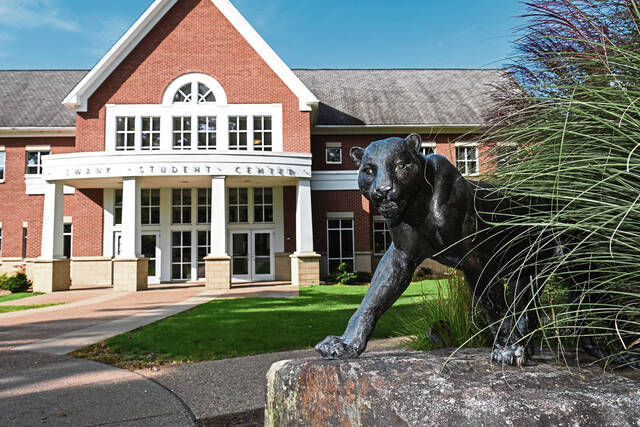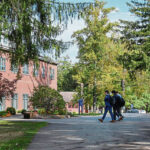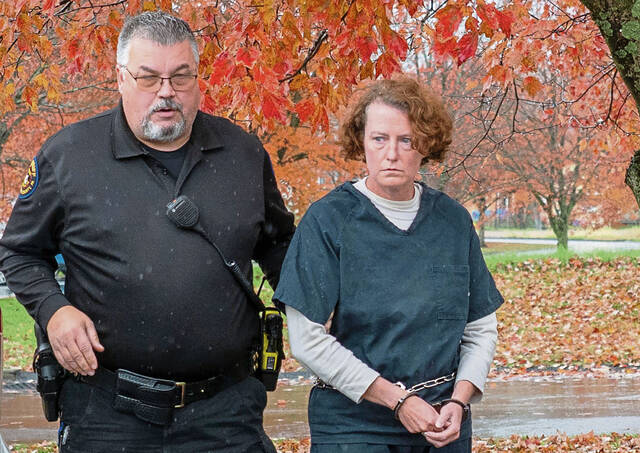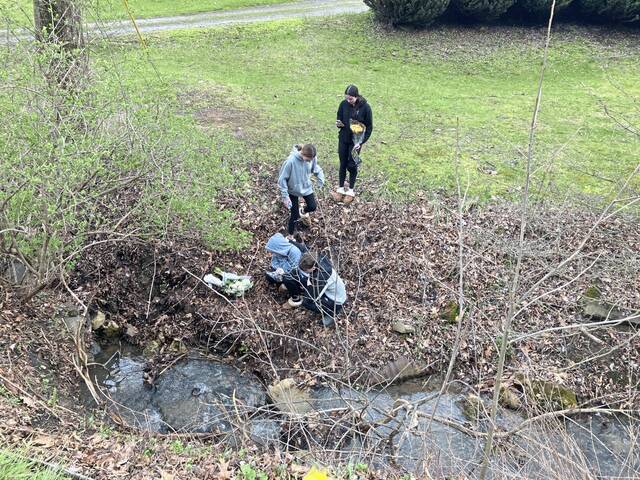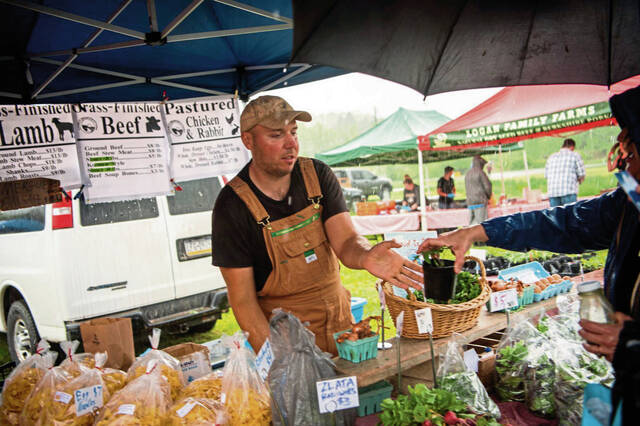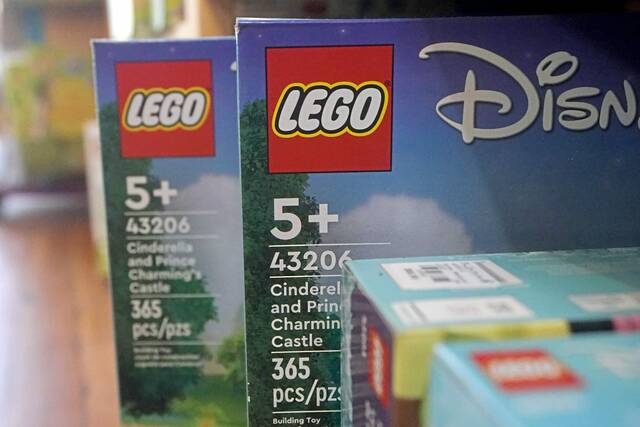The all-boys campus The Kiski School near Saltsburg isn’t the first of its kind to make the switch to coed for economic reasons.
Financial struggles related to declining enrollment continue to be the main issue for private schools, according to Gary Niels, executive director of the Pennsylvania Association of Independent Schools.
“We have to appeal to families that can afford it,” Niels said. “Obviously, that number is a small percentage of the national population.”
The Kiski School recently announced its intent to move from being an all-male boarding school to a coed model after 136 years.
Niels of Pittsburgh served as the head of the Winchester Thurston School in Pittsburgh for 16 years. He has been working with independent schools — single-sex and coed — for about 40 years.
There are 19 Pennsylvania boarding schools that are members of the association, according to Niels, with two being all girls and one being all boys. Schools that are “really well resourced” have strong enrollment, he said, while others experiencing a decline in pupil numbers are “nervous.”
“Some of our schools are operating close to what might be break-even for them financially,” Niels said, “and that small swing in the negative way in terms of enrollment puts them at a deficit situation.”
Most independent schools experienced an enrollment spike during the pandemic, when most public schools were shut down, Niels said.
“Many families came over to the independent schools world and have stayed,” he said.
The high cost of college can come into play as well, he said, because families might want to save their investment for a college education rather than a boarding school.
Tuition for 2023-24 at The Kiski School is $52,500, Head of School Christopher Brueningsen said. The national average is around $70,000 per year.
Two key factors went into The Kiski School’s decision, Brueningsen said: challenges associated with the pandemic and declining interest in single-sex boarding schools.
Niels said he believes the decision is one that’s going to put The Kiski School in a stronger position than when it could only appeal to half of the population for enrollment.
Deciding factors
Although there are pros and cons to single-sex and coed models, the most important factor when deciding where to send a child is whether the institution is a good school, according to Tom Batty, executive director of the International Boys’ Schools Coalition.
Batty of Windsor, England, ran a school for boys in Australia for 14 years, and 32 of his 36 years in education were spent in all-boys schools. The IBSC includes 260 boys schools across the world — in places such as North America, South Africa, Europe, Australia, New Zealand and Asia.
Single-sex education provides children with an environment that can suit their development, he said. For example, all-boys schools don’t have to tailor curriculum to account for the fact that girls develop earlier than boys.
“Good boys schools would know what goes into that care,” Batty said. “We believe that boys are highly relational in their learning — you’ve got to reach them before you can teach them.”
There’s evidence young men are in need of that support, he said. Over the past 12 years, there’s been data showing boys in single-sex environments outperform counterparts from coed schools on examinations, he said.
Although Batty hasn’t seen many schools making the switch like The Kiski School, he said the ones that do likely do so because of financial reasons.
Dr. Leonard Sax, founder of the National Association for Single-Sex Public Education, said he believes the viability of single-sex schools is “not very good.”
“Most American boys don’t want to go to a boys school. They want to go to a coed school,” Sax said. “They think boys schools are weird … and so … the prognosis for boys private schools in the United States is not good.”
He attributed that to homophobia he said is “still very much alive and well” in America, as many boys are fearful of what their peers would say if they said they wanted to attend an all-boys institution.
If parents believe an all-boys education is best for their son, they will have to “overrule” their child’s wishes, he said.
“Fourteen-year-olds are not competent to choose their school because they will choose a school based on where they think they will have fun and where they think they will have friends,” Sax said. “And that’s perfectly understandable.”
Girls reach maturity and full brain development at around 22 years old and boys around 30, Sax said. All-girls schools aren’t having the same problem, he said.
American culture has changed over the last 50 years, Sax said, to the point where it’s “now uncool for many boys to be scholars.”
He calls this shift the “culture of disrespect,” where it’s “cute and funny” to be disrespectful to one another and adults, which translates into the classroom.
“Because boys now define masculinity negatively, masculinity is not whatever girls do,” Sax said. “If girls care about working hard and pleasing the teacher and turning into homework on time, then boys will not do any of those things.”
In an all-boys setting, according to Sax, a school can create a different culture mindfully and intentionally — one where it’s “cool” for a boy to become a scholar.
However, Sax said he believes in school choice, as every child is unique.
Samantha Ponzetti has experienced the effects of a coed environment firsthand, as she’s one of the few girls who attended The Kiski School as a faculty daughter.
Ponzetti, 26, of Jeanette is a Class of 2015 graduate, and she’s now a counselor at Propel Schools in McKeesport. She said she didn’t feel like the classes were geared toward the boys — even though she was one of only two faculty daughters at the time.
“I felt challenged, but I never felt like it was unattainable to me,” Ponzetti said.
Though she was a day student, she said she found her niche in theater as well as a group of friends to hang out with.
“I feel like a good education is a good education, whether it’s in a single sex or coed school,” Ponzetti said.
Socializing depends on the person, though, she said, and she believes it will be easier with more of an even boys-to-girls ratio.
She said she learned to be more competitive and care more about her grades while learning in the environment at The Kiski School.
“I wanted to do better because so many people were succeeding around me,” Ponzetti said.
Ponzetti said sometimes she felt like one of the boys in conversations, but that’s how she and the other faculty daughter wanted to be treated. “We were giving each other best friend advice,” Ponzetti said.
She said learning alongside the boys from various parts of the world enabled the students to give each other different perspectives.
Though she enjoyed her experience at The Kiski School, she said it was difficult learning to interact with other girls when she got to college.
“Just having absolutely no experience with girls was weird,” Ponzetti said. “No experience with the opposite sex when you’re in single-sex school — it just makes things a lot more difficult I feel like.”
Proven success
During the 2021-22 school year, the St. Thomas More School, a private boarding school in Oakdale, Conn., made the transition to coed from an all-boys model, said Head of School Matthew Quinn.
It’s now in its third year of being coed, and Quinn said adding girls has been “fantastic.”
“It had been something we’d been evaluating for some time, and it was something we had decided would be best for our school — not only for our programs but … something that would help our enrollment,” Quinn said.
Enrollment at St. Thomas had been declining and talks about the switch had been in the works for some time. When the decision was made to move forward, there was a “great response,” he said.
“I think people were very open-minded,” Quinn said. “Our community welcomed it with open arms.”
This year, St. Thomas has 175 students — 125 male and 50 female. Quinn said the goal is to become evenly split.
The biggest value of coeducation has been “the diversity of the student body,” he said, as there are many different perspectives brought into classroom discussions, school clubs and activities.
Though St. Thomas has seen success as a coed boarding school, he said he’s seen both models thriving.
“I certainly think there’s a comfortability in single-sex education that allows students who maybe would be uncomfortable in a coeducational model to feel more self-assured and self-confident,” Quinn said.
Batty said he believes there’s still strong demand for independent schools overall, and parents will continue to prioritize education, giving up other parts of their budget to maintain the commitment — amid economic pressures.
“I think the future of independent schools is healthy,” Batty said.
The best educational model comes down to the individual needs of each student, Quinn said.
“I’m fond of saying there’s no such thing as a perfect school, but there’s the perfect school for every kid,” Quinn said. “So it’s really finding the right school for each individual.”
There’s a place for both models in today’s private education system despite enrollment challenges, Niels said.
“On the one hand, you have a higher level of specialization,” which can be an asset, Niels said. “But on the other hand, you have broader exposure to different types of people — and that brings its own set of benefits.”



